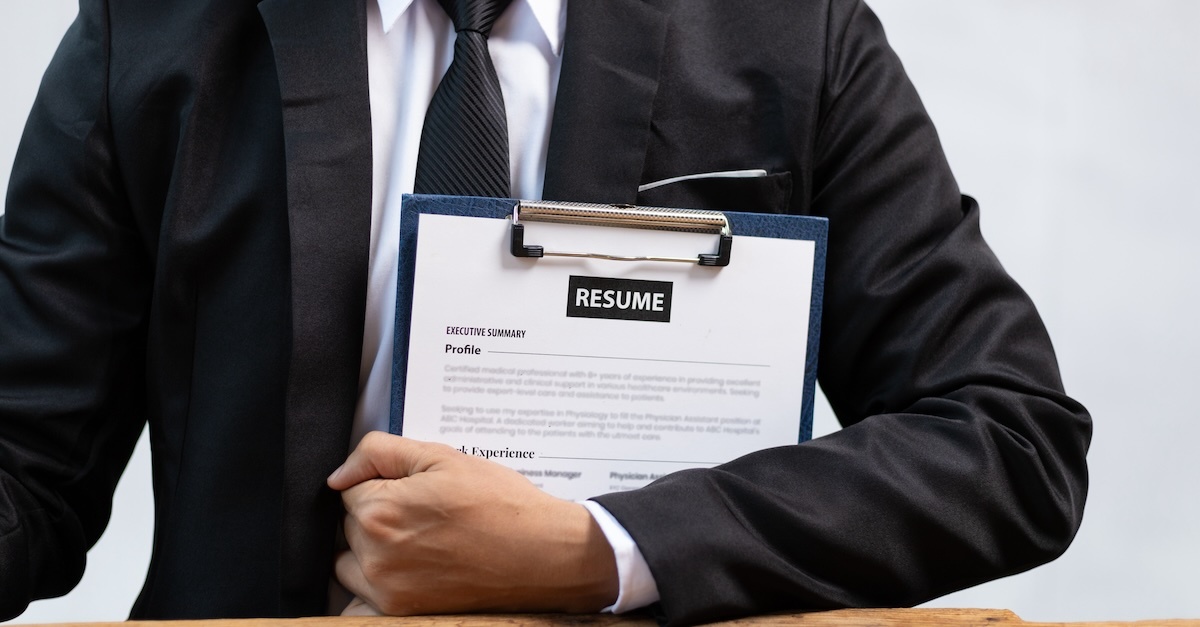Should you List References on Your Resume?
Whether you're a first-time job seeker or someone who's thinking of switching careers, you probably know the importance of a well-written resume. It's the breakdown of your professional history, skills, and other qualifications. But employers want to see more than just your accomplishments. They want to know if you're the right fit for the job.
That's where references come in.
References are a short list of people who can speak to your skills, attributes, and character, such as former colleagues and supervisors, mentors, career coaches, teachers, and academic advisers. When you pass the screening stage of the application process, the employer may reach out to your references to verify your suitability for both the job and the company. Think of it as a way for them to see your achievements through a more objective lens. In 2022, there were 2.1 million Filipinos looking for jobs, so your references can also give you that extra boost you need to land your next role. Here's what you need to know about providing a reference for job applications.
- What are references?
- Why do employers ask for references?
- Do you need references on a resume?
- Are there any advantages of including references on a resume?
- How to write a reference on a resume
- Where to list references on a resume
- Alternatives to providing references on a resume
- Who to ask for a reference
- How to ask for references
- Tips for getting strong references
- Summary
- FAQs
What are references?
References are people who can provide information about your professional and personal qualities. The best references are usually people you have worked with or those who have helped you develop. Examples include co-workers, bosses, and professors. Their positions hold authority, and they're trusted to be objective. In comparison, a friend or close cousin would not be ideal as references. Although they can probably tell a lot about you, they're more likely to be too personal and partial.
Why do employers ask for references?
Employers ask for references for at least two reasons:
- To verify the details of your resume and cover letter: A hiring manager may want to double-check your accomplishments and qualifications before offering you the job.
- To gain insight into your character: Are you hardworking? What kind of personality do you have? These questions matter for determining your working style, ethics, capabilities, and culture fit.
Do you need references on a resume?
Unless the job listing specifically asks you to include references, they aren't a necessary part of your resume. In fact, in most cases, you should keep your resume to one page at most. Even in a two-page resume, more valuable information should hold the space. That's why most people don't provide references until requested.
With that being said, here are some instances when you might consider adding references to your resume:
- When you have extra space on your resume: If you don't have any more details to include, fill up the white space with at least three references. Make sure that these references can speak to your work ethic and skills and that they are involved in a career related to the one you're applying for.
- When you know an executive from a previous job: A strong word from a higher-up could place you as a front-runner for your desired position. Make the most out of your connection by highlighting them as a reference.
- When you've received an award or promotion: If there was ever a time to flaunt your accolades, it's when you're competing for a job, so include supervisors or higher-ups who can verify your achievement.
Should I put references on my resume?
In some cases, including references on your resume can give you an advantage over other candidates, or so says Claudio Fernando Araoz, senior adviser of the global executive search firm Egon Zehnder. If given the choice to interview a candidate without references or to check references without interviewing, he says he'd pick the latter. That's because references give an "accurate, third-party assessment of your strengths and weaknesses," so employers can better determine whether you're suited to the job. In such instances, the question isn't whether to include references but which references would most improve your candidacy.
Sometimes, references can also give your job application more credibility if your work history is lacking. This is especially important for fresh graduates who have had little to no job experience.
How to write a reference on a resume

If you do decide to include references on your resume, here's how to do it:
- Have at least two references. Listing just one reference is hardly worth the effort. To some employers, it may appear as though you have almost no one to vouch for you.
- For each reference, provide their name, email address, phone number, and relationship to you.
- If it's a professional reference, mention their company and their position.
Common mistakes to avoid when listing references
Below are some common mistakes job seekers make when listing references. Avoid them when you apply for a job.
- Using bad formatting: Bad formatting can make your references hard to read. If you write "Alaya Company Chief Human Resources Officer Samantha Lopez," for example, the employer will have a tough time understanding what that means. Clearly separate names and titles.
- Not providing enough information: The employer should know exactly who your references are and how to reach them. Without enough information, the employer may be unable to contact a reference or be unwilling to do so.
- Providing too much information: Applicants sometimes provide too much information by over-explaining who their references are. The employer doesn't need to know irrelevant details. Just tell them the information needed to understand why a reference is valid.
Where to list references on a resume
Because references are usually optional on your resume, place them at the very end. Always prioritize your employment history, academic background, and related skills. If adding references bumps up your page count, consider an alternative approach.
Alternatives to providing references on a resume
Seeing as you probably shouldn't include references on your resume, here are some options for what you can do instead:
- Provide references upon request: Most job seekers provide references only when it's asked of them anyway.
- Create a separate reference list or sheet: You can place your references in an entirely different document and include it as an attachment distinct from your resume and cover letter.
Who to ask for a reference
It's important to tailor your reference list to the job you want and the employer you want to work for. For instance, if you're applying to become a nurse, your old accounting supervisor might not be the best candidate to speak about your triage skills. With that in mind, let's look at some options you might consider.
Professional references
Professional references are people you've worked with or under, so they can speak to who you are as a professional. Your professional references might include:
- A former boss
- Company executives
- Professional mentors
- Hiring personnel
- Past or present colleagues
- Clients or regular customers
Academic references
If you're a fresh graduate or seeking employment in academia, include references who can speak to your academic prowess. These may include:
- Professors
- Lecturers
- Thesis advisers
- Thesis panelists
Personal references
Personal references are people who know you outside of work. They can speak to your soft skills and provide a more holistic view of you as a person. These may include:
- Close colleagues
- Volunteer group members
- A religious or community leader
Choosing a personal reference can be tricky because you want people whose opinions hold weight. Friends and family members won't suffice because employers may expect them to say positive things by default. To ensure you're listing the right people, ask yourself if a particular reference has worked with you on a community project and can speak to your qualifications.
How to ask for references
Always take the time to let someone know you're including them on your list of references.
Asking for a reference might seem as easy as messaging someone on Facebook and asking them, but it may take a little more work than that. Unless you have a casual and friendly relationship with the person you're asking, write a formal letter of request. State your intentions clearly and in a complimentary manner.
Give your potential references ample time to review your request and respond. Also, no matter what their response is, always show your gratitude, as they took time out of their day to let you know.
Tips for getting strong references

Help your references help you. Follow these tips to ensure that your references maximize your odds of landing the job you want:
- Share your job search goals: This allows them to prepare thoughts and recommendations that can better serve your objective.
- Provide relevant information: You increase your chances of getting a strong reference if your references know exactly what qualities you want them to highlight.
- Follow up: Whether or not you get the job, keep your references in the loop.
Summary
Remember these points about providing references on your resume:
- Include references only when necessary or when it benefits you.
- Your references should hold some degree of authority to speak to your qualities.
- Be polite and respectful when asking someone to be your reference.
- Make sure your references are well-informed before, during, and after the application process.
- Double-check that you have all the necessary information and that your reference list is well-formatted.
FAQs
- Are references necessary for every job application?
Some employers don’t ask for references, but it’s good to have a list prepared just in case. - How many references on a resume are appropriate?
If you provide references on your resume, aim for two to three. If you provide them on a separate sheet, three to five should suffice. - Is it better to provide personal or professional references?
Generally, professional references have a better understanding of who you are in a workplace setting. This makes them more valuable references to employers. Ideally, however, you want to provide a mix of both personal and professional references. - What can I do if I don't have any professional references?
Focus on personal and academic references. If you have no references at all, focus on making your resume and cover letter as good as possible. - Can I use the same references for multiple job applications?
Yes. However, it’s good practice to tailor certain references to specific jobs. The idea is to provide references who have some sort of standing in the relevant profession.
